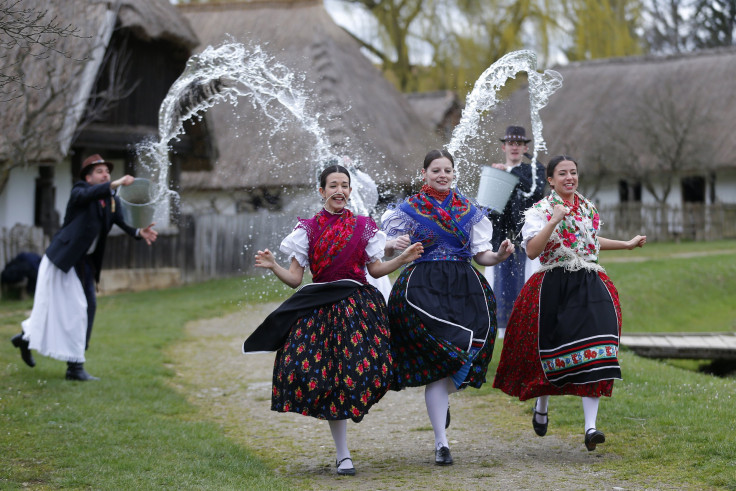Dyngus Day Facts: 10 Things To Know About Polish Holiday

If you’re feeling remiss that Easter is over, fret not, there’s another holiday to celebrate on the Monday following Easter Sunday.
Dyngus Day, or Dingus Day, is a Polish holiday celebrated across Eastern Europe — and within the U.S. where large populations of polish might reside.
Although Dyngus Day is not a Federal holiday, it is a popular public holiday in certain cities like Cleveland, Ohio, Chicago and Buffalo, New York. Buffalo hosts annual Dyngus Day events and a parade.
Read: What is Dyngus Day: How to Celebrate Dyngus Day; Is Anderson Cooper The Pussy Willow Prince?
So what exactly is Dyngus Day? Here are some fast facts about the Polish-American holiday from AL.com and PolishPlate.com and how to celebrate:
1. Dyngus Day falls the day after Easter and celebrates the end of lent.
2. Traditional Polish foods like kielbasa, pierogis and cabbage dishes are served. Even lamb-shaped butter makes an appearance on tables.
3. The major highlight of the holiday is when single men chase women and attempt to throw water on the. The attempt is to throw water on a young woman a man might be interested in pursuing. The practice of throwing water on a young woman is said to represent purification and fertility.
4. Like the tossing of water, young men would also lightly hit women on their legs with pussy willows to express their interest.
5. The traditions of Dyngus Day began with the baptism of Prince Mieszko I in 966 A.D. and the celebrations following the first Polish monarch being baptized into Christianity.
6. The Tuesday following the Easter Monday Dyngus celebrations, women could seek their own revenge by throwing plates and dishes at the men.
7. Dyngus Day celebrations within Polish communities in the U.S. date back to the 1870s.
8. Other popular celebratory activities include polka-dancing and drinking beer.
9. The Monday parties can last well into the evening and end in the daylight hours of Tuesday.
10. The word “Dyngus” can apparently be traced back to an old form of “Dingus,” which can mean “proper, suitable or worthy.”
© Copyright IBTimes 2025. All rights reserved.






















